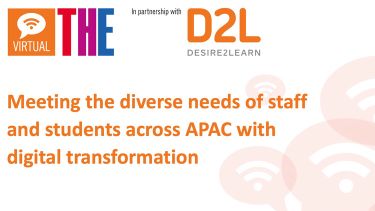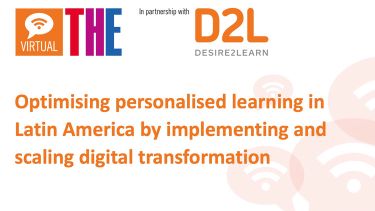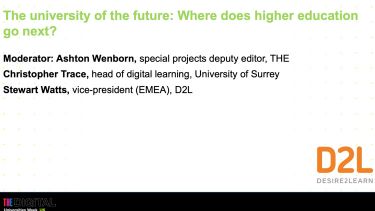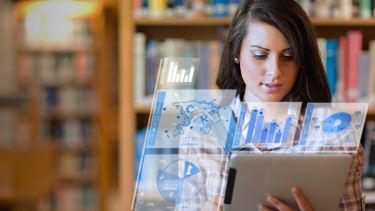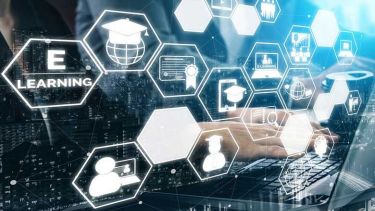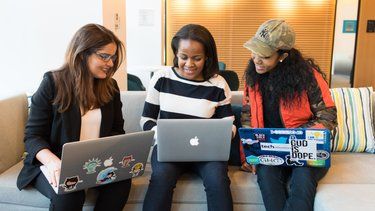Digital platforms, blended learning and quality data can help universities maximise the potential of new methodologies and pedagogies
The coronavirus pandemic has forced universities in South Africa to pivot quickly to remote learning. But what does this mean for its universities’ future digital transformation strategies, and how will this benefit local and global communities?
Describing an experience shared by many higher education institutions, Dhaya Naidoo, chief information officer at Tshwane University of Technology (TUT), said that when the pandemic hit, TUT activated its “fast-twitch muscles” to deliver learning online.
Speaking at a webinar hosted by Times Higher Education in partnership with learning platform provider D2L, Dr Naidoo added that Covid-19 had accelerated TUT’s existing digital transformation programmes. It also raised the question of how universities can offer a rich blended-learning experience for students.
“We’re moving towards new methodologies and pedagogies in digital learning,” he said. “This needs a change in mindset where the technology supports the learning, but that is not an end in itself.” With current restrictions only allowing about a third of its students on campus, TUT will use D2L’s Brightspace learning-management system to design its blended-learning experience. Offering remote access to courses means those for whom a campus experience is too expensive can now consider higher education – a key consideration in South Africa, where wealth is unequally distributed – while the data provided by a digital learning platform can help institutions improve engagement and retention.
“Data can show if you’re sacrificing that quality or where there are areas you can improve,” explained Stewart Watts, D2L’s vice-president for EMEA.
Dr Naidoo also hopes that a blended-learning experience can help bridge the gap between academic attainment and readiness for employment. He added: “Bringing students in is one thing, but the transition from university to the world of work is where the problem lies, so we need to ensure we maximise the learning experience to prepare them for that.” Watts noted that this is a global issue: “Technology has a big part to play in bridging that gap: for example, tools such as video, where students record themselves and get an analysis of their performance, can help address soft skills like communication, or using active-learning methods to develop critical thinking.” Shorter, more modular courses can help students to acquire the relevant skills or those already in work to reskill, he added.
Digital transformation is also a core component of universities' civic engagement. TUT describes itself as the “people’s university”: its research must be socially oriented, considering the real-world problems of the communities it serves. Opening access to its programmes via digital platforms has a huge role in this, beyond the necessity of remote learning during the pandemic. “Technology is part of how we make ourselves accessible to those communities, taking down the walls between the university and the communities in which it finds itself,” said Dr Naidoo.
Watch the webinar in full and find out more about D2L.
